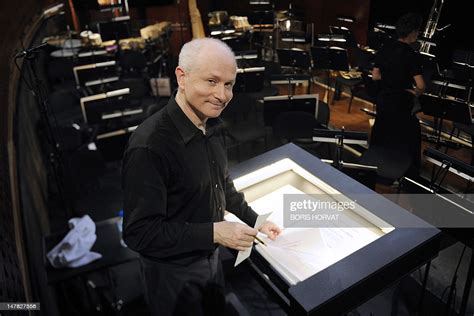A Quote by Alison Gopnik
Teaching is a very effective way to get children to learn something specific - this tube squeaks, say, or a squish then a press then a pull causes the music to play. But it also makes children less likely to discover unexpected information and to draw unexpected conclusions.
Related Quotes
[In the case of research director, Willis R. Whitney, whose style was to give talented investigators as much freedom as possible, you may define "serendipity" as] the art of profiting from unexpected occurrences. When you do things in that way you get unexpected results. Then you do something else and you get unexpected results in another line, and you do that on a third line and then all of a sudden you see that one of these lines has something to do with the other. Then you make a discovery that you never could have made by going on a direct road.
It's not only that I want to get things right when I'm composing but that my imagination often gets lost, and then I have to wait until I come back to the path. I think there's an internal force that makes a piece logical from beginning to end; I like to tell stories in music that are unexpected but also logical.
If you do a little bit of looking at books with your children and inspire them to be curious about the pictures and ... what the word means, but don't get into very structured systematic teaching at too early an age, and you also interact emotionally and have fun with pretend play ... then you have the best of both worlds.
Although adults have a role to play in teaching social skills to children, it is often best that they play it unobtrusively. In particular, adults must guard against embarrassing unskilled children by correcting them too publicly and against labeling children as shy in ways that may lead the children to see themselves in just that way.
Too many scholars think of research as purely a cerebral pursuit. If we do nothing with the knowledge we gain, then we have wasted our study. Books can store information better than we can--what we we do that books cannot is interpret. So if one is not going to draw conclusions, then one might as well just leave the information in the texts.
Beauty means a lot of different things to a lot of different people. A lot of different ways in which things can be beautiful. But this really has a very specific meaning and which is more along the lines of elegance which is that we say an idea is beautiful or elegant in mathematics or physics if a very simple principle or a very simple idea, or simple set of ideas, turns out to be very powerful and leads to all sort of unexpected structure and unexpected predictions.





































